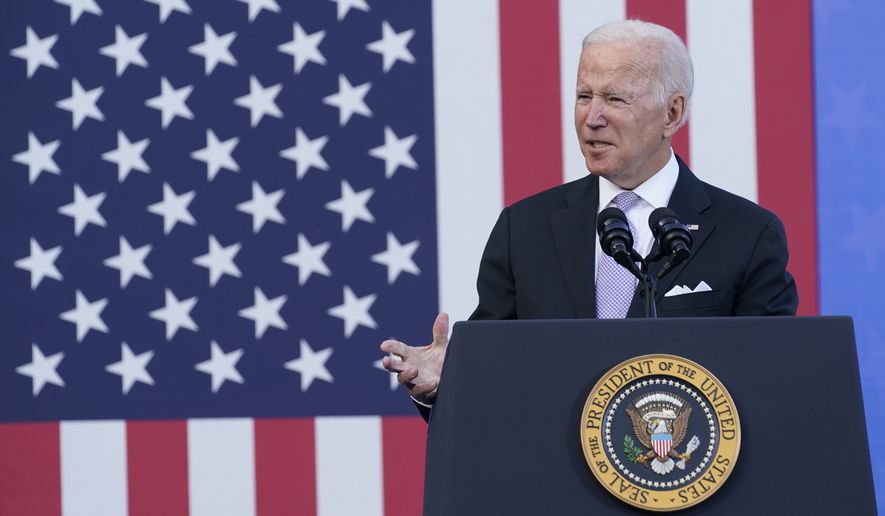More than 100 House Republicans warned on Wednesday that President Biden’s multi-trillion dollar social spending bill is only likely to exacerbate the nation’s supply chain shortages.
Rep. Sam Graves, the top Republican on the House Transportation Committee, and more than 100 other GOP lawmakers wrote in an open letter to the White House that Mr. Biden’s emphasis on tax hikes, creating new entitlement programs and imposing stringent environmental regulations would cripple the ability of businesses to respond to the blockages plaguing both consumer and industrial goods trapped in the supply pipeline.
“Multiple factors have contributed to the nation’s supply chain crisis, but one factor that is being overlooked is how the collection of harmful policies being pushed by the president and his party [are] making matters worse – not better,” Mr. Graves told The Washington Times. “Policies that encourage unemployment and worker shortages… lead to an inflationary tax increase … new regulations and prohibitions that drive up the cost of everything including energy … all of these policies are causing further breakdowns in the supply chain.”
Last week, images of more than 60 cargo container ships crammed with goods and supplies, waiting outside two California ports, received wide attention. The ships are expected to be stuck for months at the ports before they can be unloaded.
The backlog has many fearing that widespread shortages in consumer goods will drag down the holiday shopping season. Accentuating the fear are increasingly empty shelves at grocery stores and retail outlets across the country.
Mr. Biden’s White House has argued the apparent shortages are in fact the sign of a glut of merchandise coming through U.S. ports as COVID-19 restrictions go away, which combined with worker shortages and high transportation costs are causing widespread delays in getting goods to market.
“Right now we’ve been focusing on the ports and issues at the ports and what leaders at these ports will tell you is that they’ve seen an increase in volume dramatically as it relates to last year — 20% to 30% increase in volume,” said White House press secretary Jennifer Psaki.
To help alleviate the problem, Mr. Biden has urged the private sector to “step up.”
GOP lawmakers argued in their letter, whose signers included members of the House Republican leadership, that Mr. Biden should “lead by example.”
“Your administration must step up for American workers and businesses by halting your reckless tax and spending plan currently pending before Congress,” they wrote.
Dubbed “human infrastructure,” the massive 10-year spending bill, even if reduced through negotiation, is poised to significantly expand the federal safety net. From paid family leave to corporate tax hikes and new climate change regulations, the package is likely to have a major impact on workers and businesses.
Such policies, according to Republicans, will prevent companies from investing in the manpower and resources needed to boost domestic supply chains. In turn, that will do nothing to alleviate consumer shortages.
Transportation Secretary Pete Buttigieg told CNN over the weekend that the current supply chain issues wracking the U.S. economy could extend into next year.
“A lot of the challenges that we’ve been experiencing this year will continue into next year, but there are both short-term and long-term steps that we can take to do something about,” he said.
The reality that there may not be any immediate fix to the problem of empty store shelves across much of the country poses a major political problem for Mr. Biden.
A new Grinnell College Poll released on Wednesday shows the president’s approval rating falling nationally, especially with key independent voters.
“President Biden won independent voters by a 54% to 41% margin,” said J. Ann Selzer, who helped conduct the poll. “If the election were held today, our poll shows former President [Donald] Trump winning that group 45% to 28%.”
• Haris Alic can be reached at halic@washingtontimes.com.




Please read our comment policy before commenting.